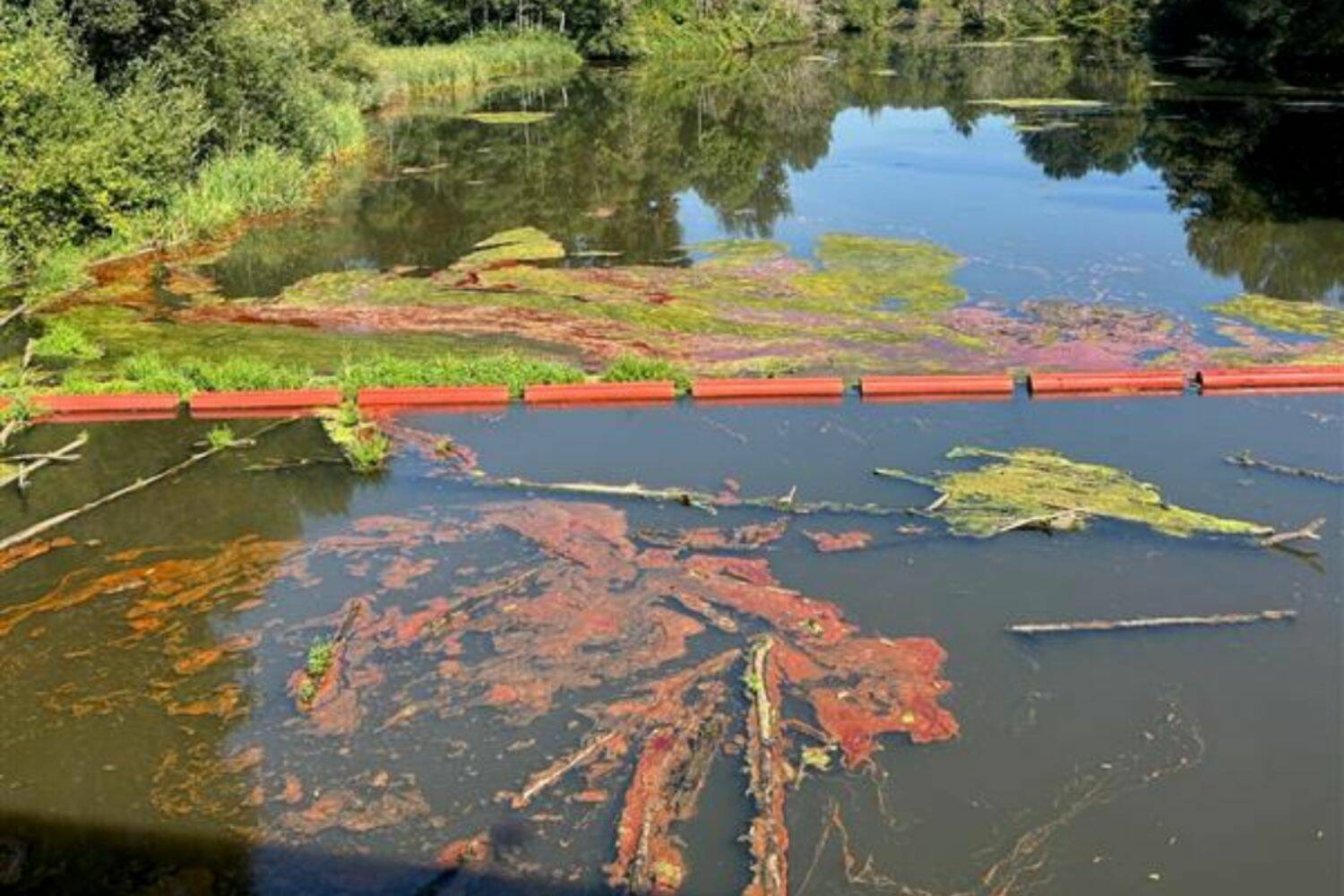The Washington Department of Ecology is investigating an apparent dumping of hundreds of gallons of cooking oil in a Renton waterway, hoping to find out who was responsible for the pollution.
Responders were notified of an apparent oil spill in the Black River near a King County pumping station near 550 Monster Road SW. on Aug. 31, according to spill responder Agustina Cartagena-Mclean at the Department of Ecology. She said at first, the oil spill did not seem particularly large, but an oily sheen was soon noticed spanning roughly a half-mile upstream into the wetland.
According to Ecology spokesperson Ty Keltner, it was originally estimated by responders that about 200 gallons of oil were in the wetland, but after closer inspection and initial response efforts, that estimation was expanded to be somewhere between 400 and 500 gallons of cooking oil.
After analysis and testing of the pollutants, Cartagena-Mclean said that safflower oil, soybean oil and peanut oil were among the primarily identified pollutants, leading investigators to believe it was a “deliberate dumping” of waste cooking oil.
But with no obvious truck access to the waterway, and few leads, investigators are not sure how the oil got there and who is responsible.
“We don’t have a source,” Cartagena-Mclean said. “We are kind of at a loss.”
According to Cartagena-Mclean, oil spills such as this one can cause immense harm to a wetland ecosystem, even though cooking oils are not as chemically toxic as other types of oil spills. She explained that oil slicks at the top of the water can prevent the proper oxygenation of the water, effectively suffocating fish and other marine wildlife.
“We found dead fish every other day,” Cartagena-Mclean said as responders already reported finding dead trout and young salmon.
She said the sticky, “goopy,” quality of the oil can damage the feathers of waterfowl and impact their ability to function and survive. Responders found an oil heron that was “emaciated,” as it was not able to hunt for its own food with oily feathers and wings. Cartagena-Mclean said responders tried to take the heron to receive medical care, but the bird died of starvation while being transported.
Keltner said an oil spill clean-up company was contracted to help clean the wetland with floating booms and other methods over the past couple of weeks.
Cartagena-Mclean said the floating booms are a good method to collect oil from the surface of the water without dredging the bottom of the sensitive marine ecosystem. She said this cooking oil spill is “one of the biggest incidents [she has] ever had to manage,” and estimated that a response and cleanup like this could cost hundreds of thousands of dollars to manage.
Keltner said that the region has hazardous waste disposal sites to properly dispose of waste oil, and added that even throwing oil in the garbage is better than dumping it or pouring it in the drain.
While the Dept. of Ecology continued to investigate this incident for clues to who could be responsible, they urge anyone who may have information about it to call 360-790-6899 and report it.
Talk to us
Please share your story tips by emailing editor@kentreporter.com.
To share your opinion for publication, submit a letter through our website https://www.kentreporter.com/submit-letter/. Include your name, address and daytime phone number. (We’ll only publish your name and hometown.) Please keep letters to 300 words or less.

